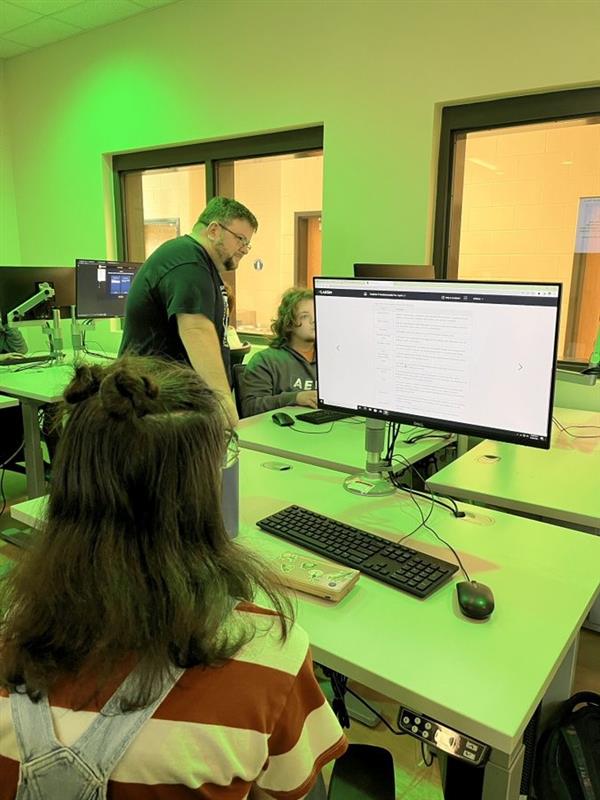Programs Offered
Page Navigation
- Paulding College & Career Academy
- Cybersecurity
Cybersecurity
-
Cybersecurity Professionals, or Information Security Analysts, have a wide range of responsibilities, but the crux of their job is to protect online data form being compromised. As more of our personal information is stored online, the more important it becomes to step up security.
The Cybersecurity pathway is designed to provide students – from the first year to the 3rd - the basic concepts and terminology of cybersecurity. The courses examine how the concept of security integrates into user involvement, security training, ethics, trust, application of cybersecurity practices and devices, and best practices management. The fundamental skills cover internal and external threats to network security and design, how to enforce network level security policies, how to protect an organization’s information, and a broad range of other topics.
Various forms of technologies will be used to expose students to resources, software, and applications of cybersecurity. Professional communication skills and practices, problem-solving, ethical and legal issues, and the impact of effective presentation skills are enhanced in this course to prepare students to be college and career ready. Employability skills are integrated into activities, tasks, and projects throughout the course standards to demonstrate the skills required by business and industry.
Competencies in the co-curricular student organization, Future Business Leaders of America (FBLA), are integral components of the employability skills standard for Cybersecurity courses. The advanced courses explore the field of cybersecurity with updated content including new innovations in technology and methodologies. It builds on existing concepts introduced in Introduction to Cybersecurity and expands into malware threats, cryptography, organizational security, and wireless technologies.
Cyber security careers are complex and many roles can be found with banks, retailers and government organizations. On the job, you can expect to safeguard an organization’s files and network, install firewalls, create security plans and monitor activity. If a breach occurs, you’ll be responsible for identifying the problem and finding a solution quickly. Because of the frequency of cyber attacks, careers are varied and qualified professionals are in demand.
Possible Careers:
- Security specialist
- Incident responder (prevent and protect against threats)
- Security administrator
- Vulnerability assessor
- Cryptographer
- Security manager
- Security architect
- Chief information security officer
- Security analyst
- Security director
- Forensic expert
- Security consultant
- Security engineer
- Source code auditor
Cybersecurity
- Introduction to Hardware 11.4480000
- Intro to Cybersecurity 11.4810000
- Advanced Cybersecurity 11.4820000












